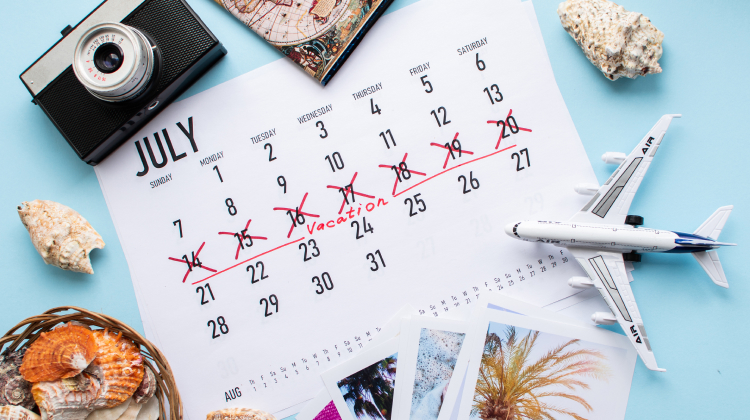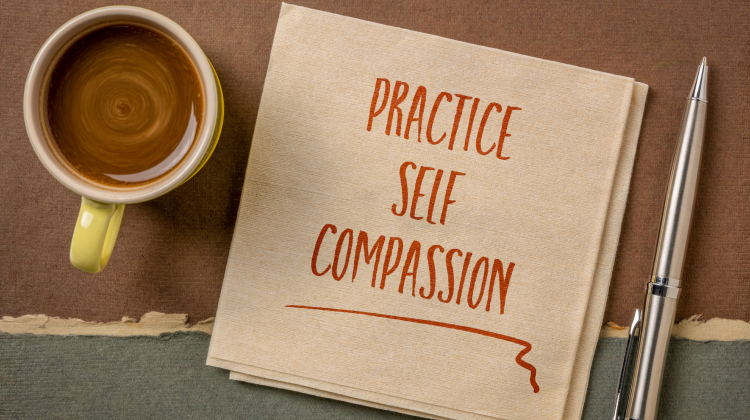 Expert's opinion
Expert's opinion
Expert's opinion
The article is a subjective view on this topic written by writers specializing in medical writing.
It may reflect on a personal journey surrounding struggles with an illness or medical condition, involve product comparisons, diet considerations, or other health-related opinions.
Although the view is entirely that of the writer, it is based on academic experiences and scientific research they have conducted; it is fact-checked by a team of degreed medical experts, and validated by sources attached to the article.
The numbers in parenthesis (1,2,3) will take you to clickable links to related scientific papers.
Birthday Depression: Tips To Cope With Birthday Blues 2024

Feeling down around your birthday is more common than people think. You might feel lonelier than usual, sad, let down, or apathetic about the whole thing. It’s not necessarily a sign of depression or something to worry about, and it usually passes within a few days or weeks. Overall, it’s mostly disappointment related to unrealistic expectations or upsetting memories of past birthdays.
Fortunately, identifying your negative emotions and reframing your ideas on what birthdays mean to you can prevent birthday blues from popping up year after year. If depression symptoms last, trying online therapy can give you the tools you need to move forward. Read on to find out why you might often say, “I hate my birthday”, and what you can do to cope.
What Is Birthday Depression?
Most people feel sad, disinterested, or upset around their birthdays at some point in their lives. These negative feelings can come up in anticipation a few days beforehand, suddenly on the day, or pop up and linger for some time afterward.
Birthday sadness is completely normal and usually passes within a week or two. Understandably, the expectations and stress of the day can easily cause someone to feel anxious, sad, lonely, or apathetic.
However, while a few days of birthday blues happen to everyone, depressive symptoms that last more than a few weeks can be a sign of major depressive disorder[1] (MDD). If someone is already struggling with depression or anxiety, a disappointing birthday could trigger a relapse or worsen symptoms.
Potential Causes
Every year you might wonder, “Why do I hate my birthday?”, but the reasons are plenty:
Disappointing Birthday Celebration
If you grew up with big celebrations surrounded by friends and family with fond memories, you might want to continue that fun-loving tradition. As we get older though, we tend to get less attention (sadly, no more princess dresses, piñatas, party favors, or piles of presents). Naturally, that can create a bit of disappointment (and remind you that you’re getting older).
Social Imposed Expectations
On top of high expectations, birthdays are also viewed as a landmark in time, similar to New Year’s. It’s become a moment to reflect on where you’re at in life and contrast that with where you expected to be at that age.
Unfortunately, our society puts an extraordinary amount of emphasis on achievement and views success in monetary or materialistic value, such as a house, car, or high-paying career. This can easily make people compare themselves to others or have unrealistic and unnecessarily lofty goals and feel behind in some sort of optimistic “schedule.” The result is feeling depressed instead of celebrating life and simply appreciating your existence.
Loneliness
Another big disappointment comes with the expectation that you should have a big party or be surrounded by friends, family, or a romantic partner. Without someone around to celebrate with, it’s common to feel lonelier than usual.
However, you can challenge this socially created belief that birthdays have to be celebrated with anyone at all. After all, a birthday is celebrating yourself – so maybe it’s the best moment of all to be with yourself and identify all of the things you’re thankful for.
Mental Illness, Traumas, And Fears
Besides societal expectations and beliefs, there are many other compounding reasons that all contribute to depression on birthdays, such as
- Anxiety
- Chronic depression
- Fear/dislike of getting older
- Traumatic or difficult childhood birthdays
- Disliking being the center of attention
- Realizing you’ve fallen behind some expected “schedule” or goal
- Comparing your achievements with friends, siblings, parents (or even influencers)
Overall, whatever the reason is for feeling sad on your birthday, you can learn coping mechanisms that will help ease depressive symptoms and give you lifelong tools for managing difficult moments in the future.
Symptoms
The expectations and emotions around birthdays can trigger major depressive disorder[1] (MDD) symptoms, such as
- Crying
- Moodiness
- Low energy
- Irritable, anxious
- Wanting to be alone
- Difficulty concentrating
- Feeling lonely or hopeless
- Ruminating about the past
- Overly comparing yourself to others
- Changes in habits, appetite, or sleep
- Physical aches or pains, digestive issues
- Avoiding talking or thinking about the day
If you’re noticing several of these symptoms and they’re lasting for more than a few weeks, it is possible you’re experiencing depression and not simply the birthday blues.
Many different types of therapy can help, each achieving great success rates. It’s more likely you’ll recover and begin to feel better when you’re supported[2] by a qualified mental health professional. You can check out the best online therapy options if that would be the easiest way for you to begin.
How Do I Conquer Birthday Depression?
No matter how upsetting your birthday may seem to be, taking some much-needed time to process your emotions and work on shifting your frame of mind can help you re-stabilize. These are a few tips and strategies you can practice regularly to prevent or alleviate the birthday blues:
Allow Yourself To Feel Sad

Trying to ignore your own birthday or stuff down disappointment about things not turning out as you’d hoped often makes things worse. Let your emotions come out in whatever way is healthiest for you. For some, that’s moving their body, journaling, talking to close friends, or spending quiet time in calming nature.
Keep in mind, most of us were told growing up that it’s not OK to cry, scream, or express ourselves in any way other than appearing neutral or happy, even if we had to fake it. But letting it all out is necessary and the only way to become a healthy adult. Bottling things up leads to anxiety, anger management issues, and depression[3]. Leaving “unfinished business” is stressful, raising your stress hormone, cortisol[4], to 9 times its normal level.
If your emotions weren’t validated, respected, or allowed as a child, it’s a sign that your emotional processing may have been interrupted at this childhood stage, hindering your processing of sadness as an adult. Whether it’s through books, therapy, or support groups, working to develop emotionally expressive skills will set you on a path to managing difficult events better for the rest of your life.
Identify What’s Bothering You And Reframe Your Thinking

Think about what your birthday means to you. Is it really important? Do you want to celebrate it or is it for appearances? What expectations do you have around your birthday and why? Finally, what emotions does your birthday trigger?
Each year might elicit a different emotion or desire, but reflecting on what’s truly important to you at that moment in your life might help you manage and plan for the day better. Maybe this year will be quieter, another year a big event, and another it might pass by as a totally normal day. Rather than expecting that every year should be the same, you can use each year’s changes as a moment of personal growth, introspection, and acceptance of life’s yin and yangs.
Express Your Needs And Desires

If you have certain expectations for your birthday plans, instead of hinting at what you’d like from your friends, family, or your significant other, express yourself in no uncertain terms. It’s unfair to expect people to read your mind. Let people know exactly how you’re feeling and what you want, or plan things yourself.
Keep An Open Mind

Events don’t always go according to plan. Even if you prepare everything perfectly, life tends to throw surprises at you. So, along with expressing and planning for your desires, keep an open mind that things may end differently than you expected – and that’s OK. We can’t control everything in life and, unfortunately, trying to do so usually leads to disappointment.
Focus On What’s Working

While many people spend their birthdays reflecting on what isn’t working in their lives, you can choose to focus on what is working. It’s not just thinking about what you could feel grateful for, which is often difficult to do when you’re feeling down, but also looking strategically at what makes you feel good and what’s helped you feel better in the past. You can use these reflections to see what could make you feel better now, as well as to form realistic goals that specifically suit your needs and desires.
For example, are you feeling sad because you don’t have the typical things you’re expected to have at your age? It’s time to reflect upon what you’re already happy with and what you would enjoy working toward, versus what society has led you to believe you should want.
Plan Something To Look Forward To

Everybody loves having something to look forward to, it boosts mental health[5] and gives us a much-needed goal to work towards. It doesn’t have to be a vacation that falls specifically on your birthday or any specific birthday-related event, but just knowing that there’s something special on the horizon that’s important to you can offset some of the anxiety or depression you’re feeling.
After reflecting on what truly makes you feel better, focus on working towards that goal. The journey itself can be a joy since looking forward to something is often just as exciting, if not more, than finally achieving it (including a vacation!). Remember: the future is just as much a part of your life as your past.
Practice Self-Compassion

Most of us have been led to believe that birthdays are a time to reflect and set goals. Instead, remember what this day is actually about – simply celebrating your existence. There’s no need to compare yourself or beat yourself up for not having the birthday or life that you expected to have by this time. Keep in mind the odds you overcame to even “be,” starting with one of a hundred thousand possible eggs and one sperm out of 60 million! There’s no more powerful concept than that you are you.
Think about how you can be as compassionate to yourself as possible during this socially imposed high-pressure time. Write yourself a compassionate letter, speak kindly to yourself, and remind yourself of what’s truly important, self-love and care. This is a daily practice that will set you up for a happier life. The more compassionate you are to yourself, the less likely you are to experience depression or anxiety, long-term[6].
Treat Yourself

If you’re already anticipating a depressing birthday, it’s time to reflect on what you can do to cheer yourself up. Try to let go of society’s birthday expectations and do whatever you want. Maybe that’s signing up for a dance, art, or photography class you’ve always wanted to try, taking yourself on a day trip or weekend getaway, or watching a funny movie for a laugh.
Remember, there’s no rulebook saying you should dance the night away, be surrounded by family members, or have a big birthday party. Let yourself celebrate the day in whatever way makes you feel as comfortable as possible.
The Takeaway
It’s normal to experience birthday depression. You may feel depressed for a while, but trying different coping techniques or getting a therapist for informed professional advice specifically for your needs and struggles can help.
Whatever you decide, just know that if you’ve tried everything and still feel disappointed, you’re not alone and it won’t always be like that. Keep reminding yourself that birthday expectations are often set too high, and you’ve likely grown up in a society that romanticizes this day as a spectacular event. It can be, but it likely won’t always be an amazing or even remotely special day every year of your life – and the relief will come from realizing that it doesn’t have to be.
+ 6 sources
Health Canal avoids using tertiary references. We have strict sourcing guidelines and rely on peer-reviewed studies, academic researches from medical associations and institutions. To ensure the accuracy of articles in Health Canal, you can read more about the editorial process here
- National Institute of Mental Health (NIMH). (2022). Depression. [online] Available at: https://www.nimh.nih.gov/health/topics/depression
- Health Quality Ontario (2017). Psychotherapy for Major Depressive Disorder and Generalized Anxiety Disorder: A Health Technology Assessment. Ontario health technology assessment series, [online] 17(15), pp.1–167. Available at: https://www.ncbi.nlm.nih.gov/pmc/articles/PMC5709536/
- Open Access Pub (2018). Consequences of Repression of Emotion: Physical Health, Mental Health and General Well Being | Open Access Pub. [online] Openaccesspub.org. Available at: https://openaccesspub.org/ijpr/article/999
- Çay, M. (2017). The Effect of Cortisol Level Increasing Due to Stress in Healthy Young Individuals on Dynamic and Static Balance Scores. Northern Clinics of Istanbul. [online] doi:10.14744/nci.2017.42103.
- Monfort, S.S., Stroup, H.E. and Waugh, C.E. (2015). The impact of anticipating positive events on responses to stress. Journal of Experimental Social Psychology, [online] 58, pp.11–22. doi:10.1016/j.jesp.2014.12.003.
- Gilbert, P. (2009). Introducing compassion-focused therapy. Advances in Psychiatric Treatment, [online] 15(3), pp.199–208. doi:10.1192/apt.bp.107.005264.



